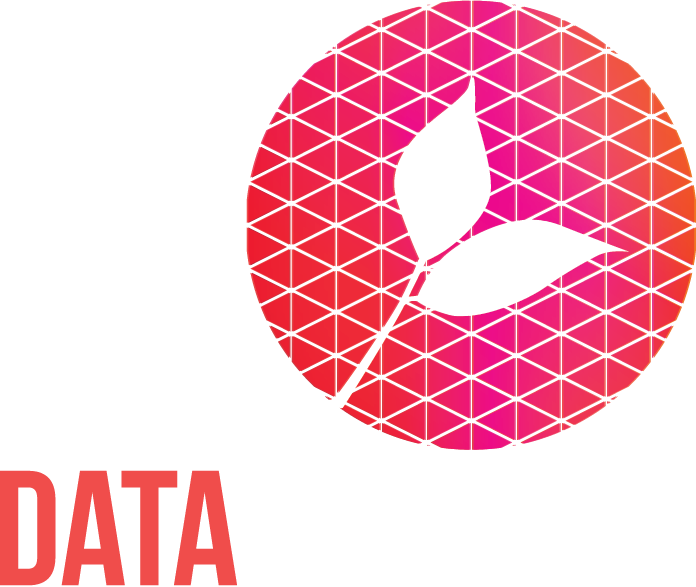A year in the life of Data Orchard CIC
As we approach the end of 2021, here’s a look back at the year that was 2020-21 for Data Orchard...
Facing into 2020-21
The Covid-19 pandemic made 2020-21 a challenging year for everyone. Luckily, as an organisation already delivering many of our services online, and well set up for cloud-based remote working, the operational adjustment was easier for us than for many.
There were areas of our work we had traditionally delivered face to face (notably our workshops and events) that we had to quickly adapt to delivering online; some projects were delayed, went on hold, or never happened; but in most cases, we and our clients adapted successfully to deliver meaningful and useful outcomes. In addition, we found ourselves unexpectedly busy working on several data projects about the impact of Covid-19 on communities, social enterprises, and charities locally and nationally.
Some key highlights
For many other reasons, 2020-21 was a milestone year for Data Orchard. In September 2020, we celebrated our seventh birthday. We took the opportunity both to reflect on our organisation’s journey so far, and to set our ambition for the future in a rapidly changing world. In November 2020, we welcomed new board members, and new staff members followed in the summer of 2021.
At our AGM with board and staff members in September 2021, we reflected on the past year and gave out home-made 'medals for everyday courage' as a token of the effort it has taken over the past year to overcome barriers and keep striving onwards.
2020-21 projects
Over the year, Data Orchard worked on many projects in the key areas of research and data analysis, impact measurement, data maturity assessment, data strategy, and training and capacity building. Our clients included charities, businesses, the public sector and social housing providers. The contexts for our work encompassed arts and culture, community, education, environment, equality and diversity, government, grant-making, health and housing.
Research and data analysis
The research and data analysis projects we did included several focused around the impact of Covid-19; evaluating the effects of the pandemic on employment support services of voluntary organisations; and using open data to create a COVID-19 Recovery Dashboard to help local decision-makers.
They also included analysis of equality and diversity data for a large social housing and care provider; creation of a food poverty risk map for Shropshire; consultation with venues and service providers in Herefordshire on inclusion and accessibility for families with children and disabilities; mapping community businesses in England; creation of Mapio Cymru, the Welsh language version of Open Street Map; and data standards research in the food sector.
Data maturity assessment
We continued to provide a free online Data Maturity Assessment tool for the not-for-profit sector. By the end of 2020, there had been over 660 validated users, mainly from charities, social enterprises, universities, and public sector bodies. Our new customisable premium product provided whole organisation data maturity assessments; and we completed a successful pilot of a cohort approach to assessment (and re-assessment) with a group of 7 small London-based charities. The lead charity, Superhighways, was able to use this to independently evidence the impact of their Datawise London programme on charities.
Our impact evaluation shows the data maturity assessment is an effective tool for learning and a catalyst for action, with most users going on to develop improvement plans - many of these successfully securing resources to implement them.
Data strategy
We supported several social housing providers and a local authority to develop their data strategies and plans for improvement with data, in all cases using our Data Maturity Assessment tool as part of the process.
Impact measurement
We supported and trained organisations to define and measure their impact: the New Model Institute for Technology and Engineering; Liverpool Lighthouse, a community arts venue; and YSS, a charity that supports vulnerable children, young people and adults across West Mercia. In late 2020 we completed a year-long journey with YSS, which included a data maturity assessment, developing their theory of change and outcome measures, and recommendations for improving impact measurement.
Training and capacity building
In 2020-21 we successfully built data skills and capabilities and promoted the importance and value of data. We delivered and took part in over 50 events, engaging approximately 1,600 people in exploring, learning and talking about data. We delivered online workshops for clients engaging hundreds of leaders, board members and staff in learning about and working on data strategy, impact measurement, and data culture. We also presented on leadership and data maturity at national and international conferences #Be More Digital Leadership Conference and Sektor 3 Festival in Warsaw (remotely, of course!)
And we did a fair amount of direct training and capacity building, notably creating more blogs and learning resources about data maturity; launching a monthly online newsletter (Data4Good Tips, Tools and Tales); developed Welsh language DataBasics training materials with our partner Data Cymru; delivered training in data fluency to staff from a social housing provider, and creative sector organisations; and created a Data Playbook and Accelerator training programme for arts and cultural organisations in Herefordshire.
Looking forward
Recently we've been planning for the next couple of years. Inspired by the call for system change and action at Social Enterprise UK Futures Summit and COP26, we'll continue to build our social enterprise towards positive change.
Wishing you all the best for 2022!

